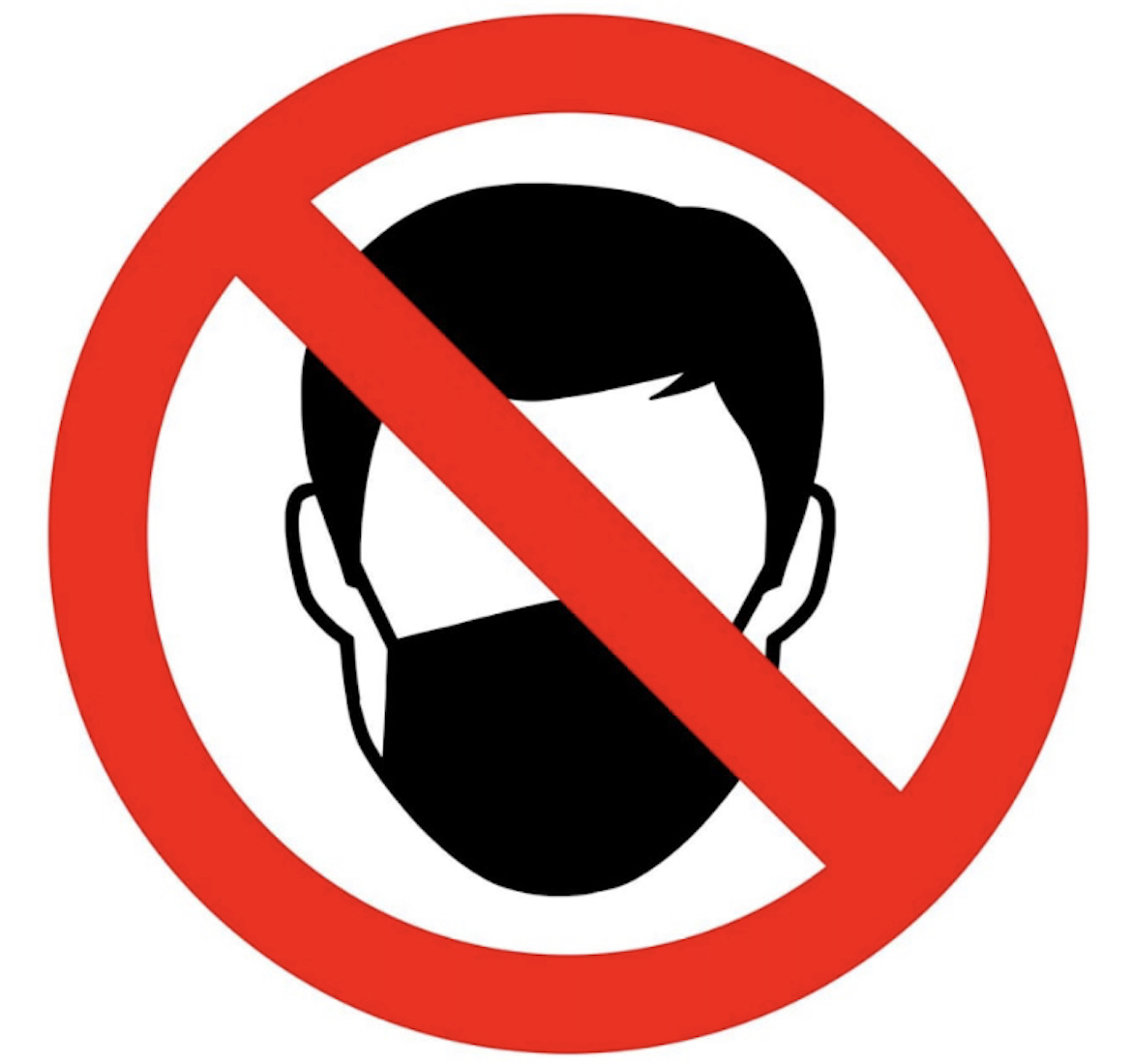We’re publishing a guest post today by Dr. Gary Sidley, a retired clinical psychologist with over 30 years’ experience working for the NHS. He sets out all the reasons why mask mandates shouldn’t be reimposed and urges people to join the Smile Free Campaign, which advocates against masking.
On the July 19th 2021, England removed almost all its legal mandates that required healthy people to wear face coverings in community settings. Scotland, Wales and Northern Ireland, however, opted to retain their mask mandates, as did London on its public transport system. Ominously, the Government’s Covid strategy for this winter includes the prospect of a ‘Plan B’ that could see the return of compulsory face masks in indoor settings in England. After a few months of bare-faced normality, how will the general public react to future directives to muzzle up?
Smile Free – a campaign group seeking the permanent removal of all mask mandates – urges each person to consider the responses to the following six questions before deciding whether to hide your face again.
Q1. Do masks help reduce viral spread?
Although some studies claim otherwise, the real-world evidence strongly suggests that masking the healthy does not significantly reduce the spread of respiratory viruses for neither the wearer nor others. Key reasons for this lack of efficacy are likely to include the improper use and storage of masks in the real world and the growing recognition that SARS-CoV-2 (the virus responsible for COVID-19) is spread via microscopic aerosol particles that are far too small to be kept at bay by face coverings.
Q2. Will wearing a mask cause me any physical harm?
If worn only for short periods, significant physical harms from wearing a mask are unlikely. However, there is evidence that long term use can lead to a number of negative consequences, including: headaches, skin irritation, fatigue and dehydration, reduced heart and lung efficiency and eye irritation. In addition, face coverings may put elderly people at more risk of injury from falls.
Q3. Do masks cause any social or psychological harms?
The social and psychological consequences of hiding our faces from other people are profound. Humans are social animals. We need to interact with others and communicate to sustain our wellbeing. Face coverings are dehumanising, inhibiting all forms of emotional expression and social interaction. Individuality minimised, identity hidden, the masked population appear broadly the same as they trudge along in their social vacuums. The impact of a masked population on children is even more problematic, denying them access to facial expressions that are so crucial for their emotional development.
Q4. Will wearing a mask help to reassure others who are anxious?
Most definitely not. Acting as a crude, highly visible reminder that danger is all around, face coverings are fueling widespread anxiety. Fear is underpinned by a perception of threat and being masked is a blatant indicator that we are all bio-hazards. Furthermore, continuing to wear masks while we gradually try to return to normality will act to keep fear going, as the wearer may attribute their survival to the mask rather than conclude that it is now safe to return to everyday activities. To recommend face coverings as a source of reassurance is akin to insisting people wear a garlic clove around their necks to reduce their fear of vampires.
Q5. Under the law, do I have a ‘reasonable excuse’ not to wear a mask?
In general terms, if wearing a mask is likely to cause you ‘severe distress’, or put you ‘at risk of harm or injury’, you are legally exempt. Mental health problems (such as anxiety, depression, and paranoia) and physical health problems (such as asthma and other respiratory difficulties) are sufficient and lawful reasons not to wear a face covering. Furthermore, you are not obliged to disclose your specific reason for exemption to anybody other than an official enforcement officer (usually a police officer); any other person who challenges you about not wearing a face covering is likely to be acting unlawfully and thereby risking prosecution. Indeed, a service provider has been fined £7000 under the Discrimination Disability Act for denying access to a woman without a mask.
Q6. Do I risk being fined if I don’t wear a mask?
While it is possible that a fine could be imposed for not complying with a mask mandate, such an event seems rare. Thus, in the four-month period June-to-September 2020, only 89 fines were issued (61 on public transport, 28 in retail settings) across the whole of England and Wales. Furthermore, if you are unfortunate enough to receive a fine and decide to contest it in Court, it is highly likely you will succeed; according to figures produced by the Crown Prosecution Service, all charges under the Coronavirus Act have either been withdrawn in Court or quashed after innocent people were wrongfully indicted.
In conclusion, mandating masks for healthy people in their communities is irrational, counterproductive, unethical and ultimately unenforceable. To help continue the fight against legal requirements to wear face coverings, please consider joining our Smile Free campaign.












To join in with the discussion please make a donation to The Daily Sceptic.
Profanity and abuse will be removed and may lead to a permanent ban.